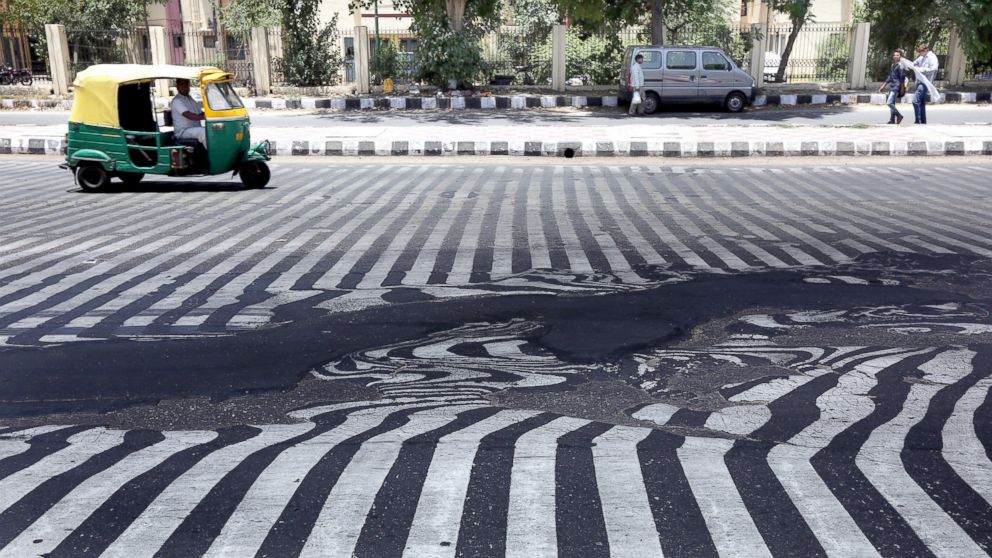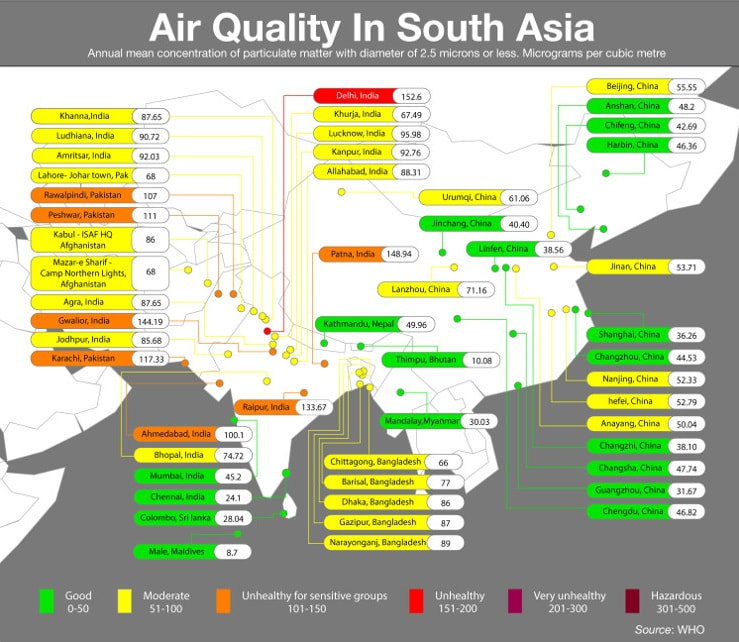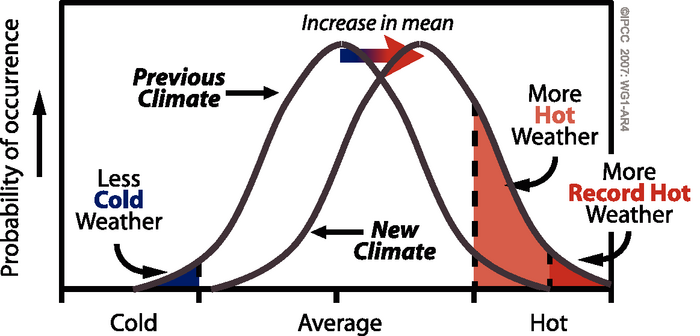|
India and Pakistan are natural and cultural allies, and anyone coming in the way of peace is a foe to both. Besides shared history of almost 5000 years and culture, the impact of climate change also remains common. In the late September this year, Foreign Minister-level talks between India and Pakistan on sidelines of UNGA session in New York were disrupted after the tensions escalated in the disputed Jammu & Kashmir territory followed by the exchange of harsh remarks from both sides of the border on Twitter and through number of press conferences. The recent standoff between the two Asian nuclear-armed neighbors pointing out nukes at each other has already put the region at the risk of an apocalypse. Today, the world is not 196 countries, it’s just one country itself. ‘Our problems’ are no more ‘ours’, ‘their problems’ are no more ‘theirs’. Wars only (temporarily) benefit those selling weapons and not any of the parties involved. Unfortunately, South Asia is also among of the world’s most disconnected regions with very low trade among the countries despite appreciable potential. What are the problems being faced by a common South Asian today?
According to the World Health Organization (WHO), 9 out of the world’s most polluted cities are in South Asia. The continuous greenhouse gas (GHG) emissions are the reasons why the world is heading towards ‘global warming’. In 2015, about 1300 people died in southern Pakistan because of heatwaves according to the BBC World News while more than 1800 died in India’s deadliest heatwaves since 1979 as per a report by Quartz India. Hottest April day was recorded this year in Pakistan’s Nawabshah when the temperature exceeded 122 degrees Fahrenheit. The world’s climate continues to change, and hence, the situation continues to worsen. What must be done? Twitter war is a quiet impractical approach and will only lead to further tensions. The current situation is not helping either of the two countries in any way. Today, we must not talk about war, but nuclear disarmament of the planet. Our problems continue to increase, while we care less to resolve any of them through any means possible. The best way is to reach out to each other. We must talk about bridging the gaps between the countries through arts, science and literature. Dialogue is a way forward and is the best opportunity to resolve all the outstanding issues. Listen to others and have your say, and this will work. Criticism on the (regional) policies of a state by the other state is not unfavorable at all, but that must not bar the one criticizing from reaching out to the other being criticized. Despite tensions, India has continued to easily grant visas to the Pakistani nationals for medical treatment and Pakistan has remained one of the largest markets for Bollywood, so to give coordination on climate change a chance must not be problem too. And, cooperation must not be limited to just the two countries. Climate change knows no boundaries. Like international cooperation, regional cooperation to addressing the climate change and increasing pollution is the need of the time. The emissions of greenhouse gases (GHGs) can be reduced to new lower levels through partnerships, change in policies and literacy. It is possible to win without a war. The citizens of both the countries have the power to compel both the governments to continue to work together, and social media is one such platforms to voice. Like European Union, Indian subcontinent can have its own emission standards endorsed by Afghanistan, Bangladesh, Bhutan, India, Maldives, Nepal, Pakistan and Sri Lanka that define the acceptable limits of exhaust emissions for passenger cars, light commercial vehicles, trucks and buses, heavy goods vehicles and off-road vehicles. Each region in the world is supposed to respond to the climate change adequately in the best ways possible and this struggle in abiding by the historic Paris Agreement is therefore, divided among the regions of the world. Annual regional summits organized under the banner of South Asian Association for Regional Cooperation (SAARC) to address the issues relating elevating temperatures of the region and the world, will be a means of communication and dialogue between the governments and to monitor the progress on knocking down emissions and analyze if the targets previously identified have been achieved or not. Through cooperation, mechanisms can be set to transform the economy of the region into more sustainable and ecofriendly one. Education is the primary step in addressing the issues, because issues can never be resolved without being properly identified. Also, very unfortunately, many South Asians are unaware of global warming and its detrimental effects on us. Universities in India and Pakistan should build awareness among the South Asian students and sponsor them for climate change literacy projects, have short courses/programs on climate change education for all and run green campaigns. By setting examples, South Asia might also be able to motivate the neighboring Middle East. But, all this is not possible without mutual understanding through better communication. Rather than heavily spending on its military, every state should spend more on education, science, human development and sustainability. The leadership of today’s world must think of shaping a brighter future together so that they can leave a healthier and safer planet for the future generations of homo sapiens. Because, those who know more are responsible more.
Global warming is a global challenge and cannot be adequately addressed without global cooperation and global will that would require global efforts. “There are two problems for our species’ survival – nuclear war and environmental catastrophe – and we are hurtling towards them. Knowingly.” – Noam Chomsky
5 Comments
Shahrukh Irshad
3/10/2018 02:42:18 pm
Love the idea of Run Green Campaigns! Good Effort.
Reply
Esfand Yar Alo
3/10/2018 08:02:23 pm
The data is beyond deadly! And the aware students community on both sides do have a role to play. But it's not about only awareness anymore. Its about the will to act! Sure , the students from every side can make governments to comply with certain regulations, but humans never do something unless struck by a heavy blow!
Reply
Ansab Majeed
5/10/2018 11:29:49 am
Great analysis. Unfortunately, it will take quite a few years until either state can pay heed to issues line climate change. Intermixing between both countries is necessary for that, and I hope our future generations will be pioneers on that front.
Reply
Devin retzlaff
20/11/2018 10:05:55 am
This is a concise explanation of the over arching problems associated with humanity's transfer into sustainable power. I believe that as the younger generation moves into political positions climate conservation will become more prevalent . Unfortunately these political changes take a long time to enact and time is what we are running out of quickly.
Reply
Natalie Decena
6/12/2018 01:48:27 pm
I agree that the only way to approach this ongoing challenge of climate change and nuclear war is through communication and each countries commitment to educating their citizens on the dire situation we are facing today. Especially being that South Asia has undergone some of the worst natural disasters of the century, the climate is only continuing to change so we have to act fast!
Reply
Leave a Reply. |
Categories
All
Archives
March 2024
|



 RSS Feed
RSS Feed
